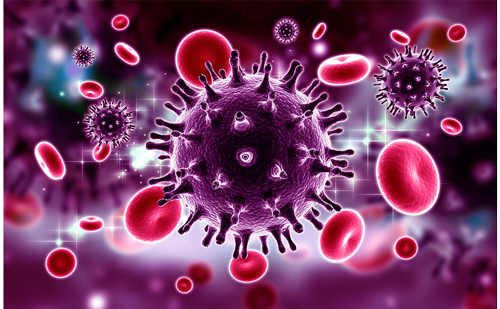There have been many developments in the search for a vaccine for the prevention of HIV in recent years. Currently, many techniques are available for preventing HIV infection, but the development of a safe, effective and affordable vaccine is most important in controlling the HIV pandemic.1
In this expert interview, Dr Stephaun E Wallace discusses the development of vaccines in preventing HIV infection and highlights the possible impact a vaccine could have on at-risk populations. Dr Wallace also highlights findings from the recent phase III MOSAICO study (ClinicalTrials.gov identifier: NCT03964415), which evaluated the efficacy of a heterologous vaccine regimen using mosaic-based adenovirus serotype 26 vector (Ad26.Mos4.HIV), aluminium phosphate-adjuvanted Clade C gp140 and Mosaic gp140 for the prevention of HIV-1 infection.2,3
Q. What types of vaccines are currently in development, and at what stages?
We have a few trials currently moving forward (ClinicalTrials.gov identifier: NCT04177355; ClinicalTrials.gov identifier: NCT04607408), with a much larger portfolio being planned for the near future.4,5 The types of products we are testing in early phase studies include new, more potent adjuvant compounds that may make vaccine candidates more potent and mRNA HIV vaccines. Soon, we will be testing combinations of broadly neutralizing antibody products that build on what we learned from the Antibody Mediated Prevention studies.6
Q. How could a safe, effective and affordable vaccine impact populations at risk?
A safe and effective vaccine would have major global social and economic implications in the fight against HIV. A vaccine that is less than 80% effective could still avert millions of new HIV
cases globally.7
Q. What was the rationale for using a mosaic-based adenovirus serotype 26 vector for the prevention of HIV?
Ad26.Mos4.HIV was moved into later-stage studies due to the positive results we saw from early phase studies.8,9 The product has a good safety profile, and there are indicators that the results seen early on may result in efficacy in people.
Q. What are the aims, design and eligibility criteria of the Mosaico study?
The Mosaico study was a double-blind, placebo controlled, randomized clinical study testing the efficacy, safety and immunogenicity of a candidate HIV vaccine regimen.2 The primary endpoint was vaccine efficacy as derived from confirmed HIV-1 infections. The participants were randomized in a 1:1 ratio to the study vaccine or placebo arm of the study.
The study enrolled about 3,900 cisgender men and transgender people who have sex with cisgender men and/or transgender people at clinics located in Argentina, Brazil, Italy, Mexico, Peru, Poland, Spain and the United States. To join the study, participants had to be HIV-1 negative and between 18 and 60 years old. Participants had to be willing to have medical check-ups and regular HIV counselling and testing. There were also other criteria that determined whether a person was eligible to join the study, including whether a potential participant had chosen to use HIV pre-exposure prophylaxis (PrEP). Those who had used PrEP were not eligible for the study, as PrEP, when taken correctly, is a highly effective HIV prevention method. If potential participants were interested in accessing PrEP, we connected them to services to access PrEP. If they chose not to accept PrEP, they were given information about the Mosaico study, and they were given information about PrEP throughout the study as part of the risk reduction counselling. If a participant chose not to accept PrEP, joined the study, and later changed their mind and wanted to start PrEP, they were referred to services to access the medication and remained in the study.3
Q. Why was the primary endpoint not achieved, and what factors might have contributed to this?
The analysis is on-going, and we will have more to report on this in the near future.
Q. What has the phase III Mosaic clinical trial taught us about HIV vaccine development, and what are your recommendations for future studies?
The Mosaico study has highlighted the power and benefit of early and frequent community involvement in clinical research. The study also highlighted that we need to continue to innovate and iterate quickly to develop vaccines that are more potent and effective.
Stephaun E Wallace
Dr Stephaun E Wallace is a recognized research epidemiologist and health equity and social justice leader. He has more than two decades of experience in public health and human services (HIV/AIDS and other infectious diseases) and social justice efforts, and more than a decade of experience conducting public health research globally. He is the director of External Relations for the Fred Hutch-based COVID-19 Prevention Network and HIV Vaccine Trials Network, principal staff scientist in the Vaccine and Infectious Disease Division at Fred Hutch, a clinical assistant professor in Global Health at the University of Washington, USA, and founder and director of the Office of Community Engagement at the University of Washington/Fred Hutch Center for AIDS Research. Dr Wallace, a US Army veteran, has earned master’s degrees in management and organizational leadership and a PhD in public health epidemiology. Dr Wallace holds membership in and serves on the board of numerous regional, national and international organizations. Dr Wallace’s work has been featured and highlighted in various media, including The New York Times and the Los Angeles Times, and profiled among leading voices such as Bill Gates, who wrote about Dr Wallace’s background and expertise in his book How to Prevent the Next Pandemic.












